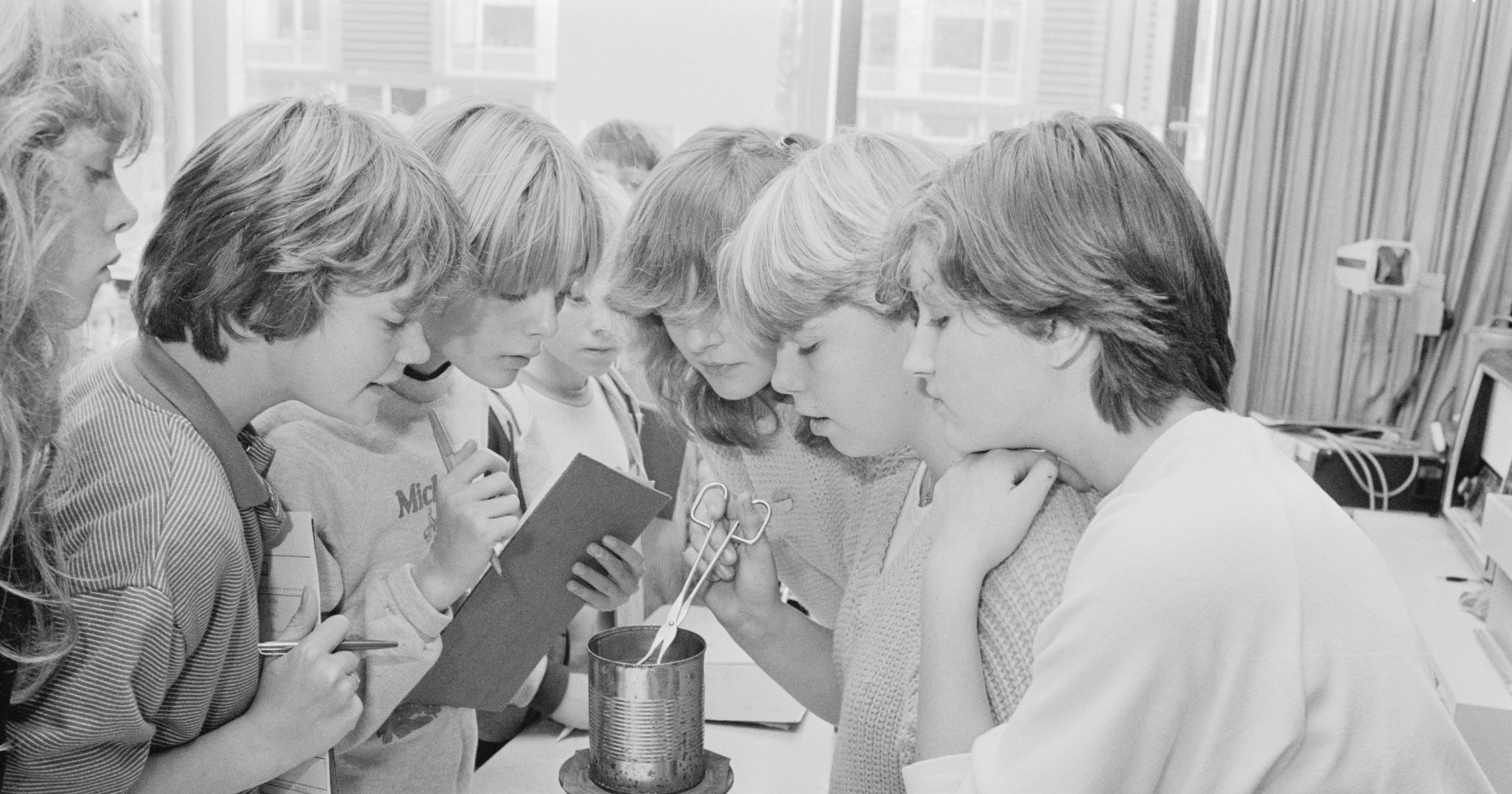Parents today often tell me, “It just seemed easier back then.”
I don’t know that it was easier, but I do think many of us grew up in ways that quietly trained us to stand on our own two feet.
We didn’t call it “emotional self-sufficiency,” because we just called it life.
I’m a grandfather now, and I spend a lot of afternoons looping the park path with a scooter brigade of grandkids.
Watching them, I’m reminded of what formed my generation—small, ordinary experiences that built toughness and calm from the inside out.
None of it was glamorous, but all of it added up.
Here are six childhood experiences many boomers had that helped us become emotionally steady without ever realizing that’s what was happening:
1) Roaming the neighborhood without a script
After school, we’d dump our bags, grab a bike, and disappear until the streetlights blinked on.
No GPS tracker, no rolling text updates, and no adult running our itinerary.
We made our own play, sorted out our own squabbles, and learned the ancient art of getting un-lost.
Those long, unstructured afternoons taught us more than how to build a lopsided tree fort.
Related Stories from The Artful Parent
We learned to sit with feelings and figure them out: Frustration when the fort collapsed, embarrassment after a friend’s cutting remark, and pride when we finally got the rope swing to launch.
There wasn’t a grown-up hovering to smooth every wrinkle as we practiced making plans, adjusting them, and recovering when they fell apart.
That’s emotional regulation in work boots.
2) Doing chores because the household needed you
Chores were expected because the house didn’t run itself.
We mowed, raked, folded, and scrubbed.
I still remember my mother’s quiet “thank you” when the kitchen shone—no fireworks, just the warm sense that I mattered.
- Psychology says people who feel drained by small talk but energized by solitude often develop these 8 advanced emotional skills over time - Global English Editing
- If someone becomes more stingy with age, psychology says these 7 fears might be why - Global English Editing
- The loneliest retirees aren’t the ones who never had children—they’re the ones whose children chose distance and never explained why - Global English Editing
Regular responsibility builds a sturdy kind of confidence.
You see that your effort has visible impact and that becomes fuel you can draw on when life gets wobbly: “I can handle this. I’ve handled things before.”
Chores also teach timing—start early, finish properly, and live with the results if you cut corners.
That’s the groundwork for an internal voice that says, “Do the right thing even when no one’s watching.”
Competence grows from repetition, not rescue.
3) Earning our own money early
Paper routes, babysitting, mowing lawns—those first odd jobs were masterclasses in emotional steadiness.
You learn to knock on doors, accept “no,” and try again, and you weather the Saturday you forget to set an alarm and pedal madly to catch up.
Likewise, you feel the disappointment of spending three weeks’ pay on something silly—and the pride of saving for the skateboard you wanted more than anything.
Handling your own money teaches delayed gratification with teeth.
You also learn boundaries: Setting prices, saying “I’m not available at that time,” and dealing with people who don’t hold up their end.
That’s conflict tolerance and self-advocacy rolled into one.
4) Being bored—and learning that boredom isn’t an emergency

We had three TV channels and a library card.
On long summer days, boredom arrived like a thick, humid cloud.
No algorithm rushed in to entertain us.
At first, we complained, then someone found a deck of cards, a hammer, or a strip of cardboard that absolutely had to become a ramp.
Boredom morphed into curiosity, which turned into flow.
That slow transition is a muscle; when you practice it, you stop panicking at the first twinge of “nothing to do.”
You learn to sit with your own thoughts, to notice what you’re actually feeling, and to steer your attention instead of letting it yank you around.
That’s a quieter kind of resilience that pays off during exams, conflicts with friends, and the long stretch between “I sent the application,” and “I heard back.”
5) Walking to school, fixing our own snags, and finding our way
A surprising amount of steadiness comes from navigating ordinary logistics.
Many of us walked or biked to school, rain or shine.
If a tire went flat, we figured out a patch; if a chain slipped, we flipped the bike and got greasy.
Additionally, if we missed the bus, we learned the timetable or called home from a payphone with a sheepish voice and exact change.
The message wasn’t about figuring everything out alone, but it was about trying first.
That tiny gap between problem and plea taught us to pause, assess, and take a first step.
Emotionally, that habit matters. When your stomach tightens—late assignment, awkward text thread—you’re less likely to freeze or flare.
You run a quick internal checklist: What’s the simplest move I can make right now?
6) Waiting for what we wanted
If you wanted concert tickets or a toy, you saved. If the photo lab said “ready in a week,” you waited.
We stood in lines, mailed forms, and checked the mailbox for a letter that might or might not have arrived.
The world moved at the speed of paper and patience.
Waiting isn’t just a time issue; it’s a feeling issue.
Anticipation, uncertainty, and envy—those swirl around and tug at you.
Learning to live with them without acting out is emotional weight training.
You practice channeling that restless energy into something constructive: Extra babysitting shifts, drafting the next plan, or simply enjoying what you do have while you reach for what you want.
A quick word
Some of us grew up with a kind of stiff-upper-lip approach to feelings.
It taught self-control, yes, but sometimes at the cost of expression.
Emotional self-sufficiency means you can name what you feel, soothe yourself, and choose a response you won’t regret.
If your child learns to do all three, they’ll carry a sturdy calm into every room they enter.
We didn’t always know these experiences were shaping us because we were just living.
Looking back, I can see how they layered into a kind of inner ballast—a steadiness that makes life’s gusts less likely to knock you flat.
Your child can build the same ballast, step by ordinary step, with your calm presence nearby.



